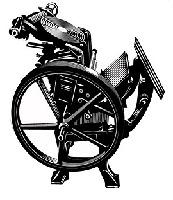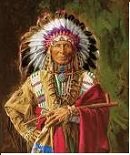- Posts: 5754
- Thank you received: 40
Was John Quincy Adams A "Founding Father"??
- PrintSmith
-

- Mountain Legend
-

Whether or not JQA was a founding father is a difference of opinion, not a difference of intelligence. A perfect example of those who wish to attach, by whatever means possible, to the person the disdain they feel for their political views.
Save the embarrassment for yourself my friend - you are in much greater need of it than I am.
Please Log in or Create an account to join the conversation.
- LadyJazzer
-

- Mountain Legend
-

- Posts: 14880
- Thank you received: 27
There's no "difference of opinion"... A 9-year-old boy was NOT a "founding father", and no twisted logic can make him so.
(But I'm really enjoying the "victimhood" thing... That's very entertaining.)
(Sign taped to "Bachmann for President" bus: "We're bringing teh 'crazy' to you!")
Please Log in or Create an account to join the conversation.
- ScienceChic
-

- Mountain Champion
-

- Posts: 15746
- Thank you received: 320
http://www.alternet.org/culture/151493/ ... ink?page=1
This Fourth of July, Let's Stop Worrying What the Founders Would Think
History bears little resemblance to the cartoonish view of the birth of the nation that most people hold.
July 1, 2011
While at the core many of the same struggles continue today: corruption, greed, waste, abuse of power; we do face vastly differing circumstances than that faced by the citizens of the newly formed United States of America (population growth alone requires changes in governing). It would behoove us to take the lesson of how they dealt with implementing radical change - listening and debating all viewpoints openly and equally before settling on compromise and flexibility, and creating a document that is the embodiment of those very characteristics - and apply that to our problems today. No one viewpoint has all the answers, and our strength comes from our diversity in beliefs, attitudes, and experiences.This Independence Day, as we're drinking and stuffing our faces to commemorate the founding of our nation, let's take a moment to reflect on just how tumultuous the Revolutionary period really was.
History bears little resemblance to the cartoonish view of the birth of the nation that most people hold. Our forefathers didn't just wake up one morning, declare "no taxation without representation!" and then wait for Paul Revere to tell them it's on. It was a period of 30 years of internal struggle to define what this new country might look like, and the notion that there were some immutable principles on which everyone agreed is entirely wrong.
Between 1761, when the first signs of discontent with England became apparent in the Colonies, and 1791, when the Bill of Rights was ratified, Lepore explains that leading Americans debated an “ocean of ideas” from which “you can fish anything out.”
Indeed, ever since the last of those revolutionaries we've come to call the “Founding Fathers” shuffled off this mortal coil, Americans from across the political spectrum have claimed to be continuing on in their tradition. Saying the Founders would be standing firmly behind one's ideological preferences – or that they'd be rolling over in their graves contemplating one's opponents' – is a rich tradition in American politics. Conservatives tend to swear an almost religious allegiance to the Constitution, but as I've written before, their “originalism” is simply a crutch used to avoid making substantive arguments...
The Constitution was a beautiful document, but it was not intended to be a detailed guidebook for governing the country. Lepore writes that “the Founders were not prophets. They believed to defer without serious examination to what your forefathers believed is to become a slave of the past.”
it was none other than Thomas Jefferson who wrote, “Some men look at constitutions with sanctimonious reverence...They ascribe to the men of the preceding age a wisdom more than human.” In Federalist 44, James Madison wondered if it was “not the glory of the people of America, that... they have not suffered a blind veneration for antiquity, for custom, or for names, to overrule the suggestions of their own good sense, the knowledge of their own situation, and the lessons or their own experience?”
This gets to the heart of the matter: the Founders were grappling with 18th century problems, and would be bewildered by the debates we're having today.
Happy 4th of July everyone!
"Now, more than ever, the illusions of division threaten our very existence. We all know the truth: more connects us than separates us. But in times of crisis the wise build bridges, while the foolish build barriers. We must find a way to look after one another as if we were one single tribe.” -King T'Challa, Black Panther
The truth is incontrovertible. Malice may attack it. ignorance may deride it, but in the end, there it is. ~Winston Churchill
Please Log in or Create an account to join the conversation.
- PrintSmith
-

- Mountain Legend
-

- Posts: 5754
- Thank you received: 40
It would behoove us to take a lesson from them in how they dealt with radical changes. They set the task of asking the best minds representing the people to come up with a plan - and then they went to the people to approve or disapprove that plan; not simply pack a bunch of people onto a bench and have them decree from on high. Remember how the former slaves became citizens? Remember how women were granted suffrage? Quite a bit different than a group of people deciding they had the power to do as they wished simply by torturing new interpretations out of thin air and appointing a group of people to say they could do it. You want to grant to the federated government the power to take over all the health care of the citizens? Fine - ask the citizens if they are OK with that idea. Propose the amendment of the Constitution and let the people tell you whether or not they wish to grant you that much authority and power instead of resting your head on your left shoulder, squinting so hard that everything becomes blurry and proclaiming that it is quite clear that the authority and power already exists.Science Chic wrote: Just some food for thought I'd throw in here...
This gets to the heart of the matter: the Founders were grappling with 18th century problems, and would be bewildered by the debates we're having today. While at the core many of the same struggles continue today: corruption, greed, waste, abuse of power; we do face vastly differing circumstances than that faced by the citizens of the newly formed United States of America (population growth alone requires changes in governing). It would behoove us to take the lesson of how they dealt with implementing radical change - listening and debating all viewpoints openly and equally before settling on compromise and flexibility, and creating a document that is the embodiment of those very characteristics - and apply that to our problems today. No one viewpoint has all the answers, and our strength comes from our diversity in beliefs, attitudes, and experiences.
Happy 4th of July everyone!
That is the lesson we need to relearn about a government of, by and for the people. The power of government is a strictly limited power, not one whose only limits are the ones that exist in the minds of those who are currently serving in that government.
Please Log in or Create an account to join the conversation.
- major bean
-

- Mountain Legend
-

- Posts: 2612
- Thank you received: 0
http://www.fff.org/freedom/0892c.asp
The Rise, Fall, and Renaissance of Classical Liberalism, Part 1
by Ralph Raico, August 1992
Classical liberalism — or simply liberalism, as it was called until around the turn of the century — is the signature political philosophy of Western civilization. Hints and suggestions of the liberal idea can be found in other great cultures. But it was the distinctive society produced in Europe — and in the outposts of Europe, above all, America — that served as the seedbed of liberalism. In turn, that society was decisively shaped by the liberal movement.
Regards,
Major Bean
Please Log in or Create an account to join the conversation.
- MsMAM
-

- Mountain Legend
-

- Posts: 1233
- Thank you received: 2
major bean wrote: Please follow the link to read one of the most insightful articles on the significance of our country. There is no portion for a quote of this article that can summarize its message.
http://www.fff.org/freedom/0892c.asp
The Rise, Fall, and Renaissance of Classical Liberalism, Part 1
by Ralph Raico, August 1992
Classical liberalism — or simply liberalism, as it was called until around the turn of the century — is the signature political philosophy of Western civilization. Hints and suggestions of the liberal idea can be found in other great cultures. But it was the distinctive society produced in Europe — and in the outposts of Europe, above all, America — that served as the seedbed of liberalism. In turn, that society was decisively shaped by the liberal movement.
*sigh*
Please Log in or Create an account to join the conversation.
- major bean
-

- Mountain Legend
-

- Posts: 2612
- Thank you received: 0
What is your take on this treatise?MsMAM wrote:
major bean wrote: Please follow the link to read one of the most insightful articles on the significance of our country. There is no portion for a quote of this article that can summarize its message.
http://www.fff.org/freedom/0892c.asp
The Rise, Fall, and Renaissance of Classical Liberalism, Part 1
by Ralph Raico, August 1992
Classical liberalism — or simply liberalism, as it was called until around the turn of the century — is the signature political philosophy of Western civilization. Hints and suggestions of the liberal idea can be found in other great cultures. But it was the distinctive society produced in Europe — and in the outposts of Europe, above all, America — that served as the seedbed of liberalism. In turn, that society was decisively shaped by the liberal movement.
*sigh*
Regards,
Major Bean
Please Log in or Create an account to join the conversation.
- LadyJazzer
-

- Mountain Legend
-

- Posts: 14880
- Thank you received: 27
Just another ad hominem, and boring, liberal bash... You need some new material. (That one is nearly 20 years old...) Why don't you try something from the John Birch Society website? That seems more your style.
Deflectors on maximum, Scotty!
Please Log in or Create an account to join the conversation.
- MsMAM
-

- Mountain Legend
-

- Posts: 1233
- Thank you received: 2
major bean wrote:
What is your take on this treatise?MsMAM wrote:
major bean wrote: Please follow the link to read one of the most insightful articles on the significance of our country. There is no portion for a quote of this article that can summarize its message.
http://www.fff.org/freedom/0892c.asp
The Rise, Fall, and Renaissance of Classical Liberalism, Part 1
by Ralph Raico, August 1992
Classical liberalism — or simply liberalism, as it was called until around the turn of the century — is the signature political philosophy of Western civilization. Hints and suggestions of the liberal idea can be found in other great cultures. But it was the distinctive society produced in Europe — and in the outposts of Europe, above all, America — that served as the seedbed of liberalism. In turn, that society was decisively shaped by the liberal movement.
*sigh*
Why would I bother? You never even told me what my gay agenda is.
Please Log in or Create an account to join the conversation.
- major bean
-

- Mountain Legend
-

- Posts: 2612
- Thank you received: 0
What?! Did I say you had a gay agenda? I think that you are dreaming or something.MsMAM wrote:
major bean wrote:
What is your take on this treatise?MsMAM wrote:
major bean wrote: Please follow the link to read one of the most insightful articles on the significance of our country. There is no portion for a quote of this article that can summarize its message.
http://www.fff.org/freedom/0892c.asp
The Rise, Fall, and Renaissance of Classical Liberalism, Part 1
by Ralph Raico, August 1992
Classical liberalism — or simply liberalism, as it was called until around the turn of the century — is the signature political philosophy of Western civilization. Hints and suggestions of the liberal idea can be found in other great cultures. But it was the distinctive society produced in Europe — and in the outposts of Europe, above all, America — that served as the seedbed of liberalism. In turn, that society was decisively shaped by the liberal movement.
*sigh*
Why would I bother? You never even told me what my gay agenda is.
Regards,
Major Bean
Please Log in or Create an account to join the conversation.





